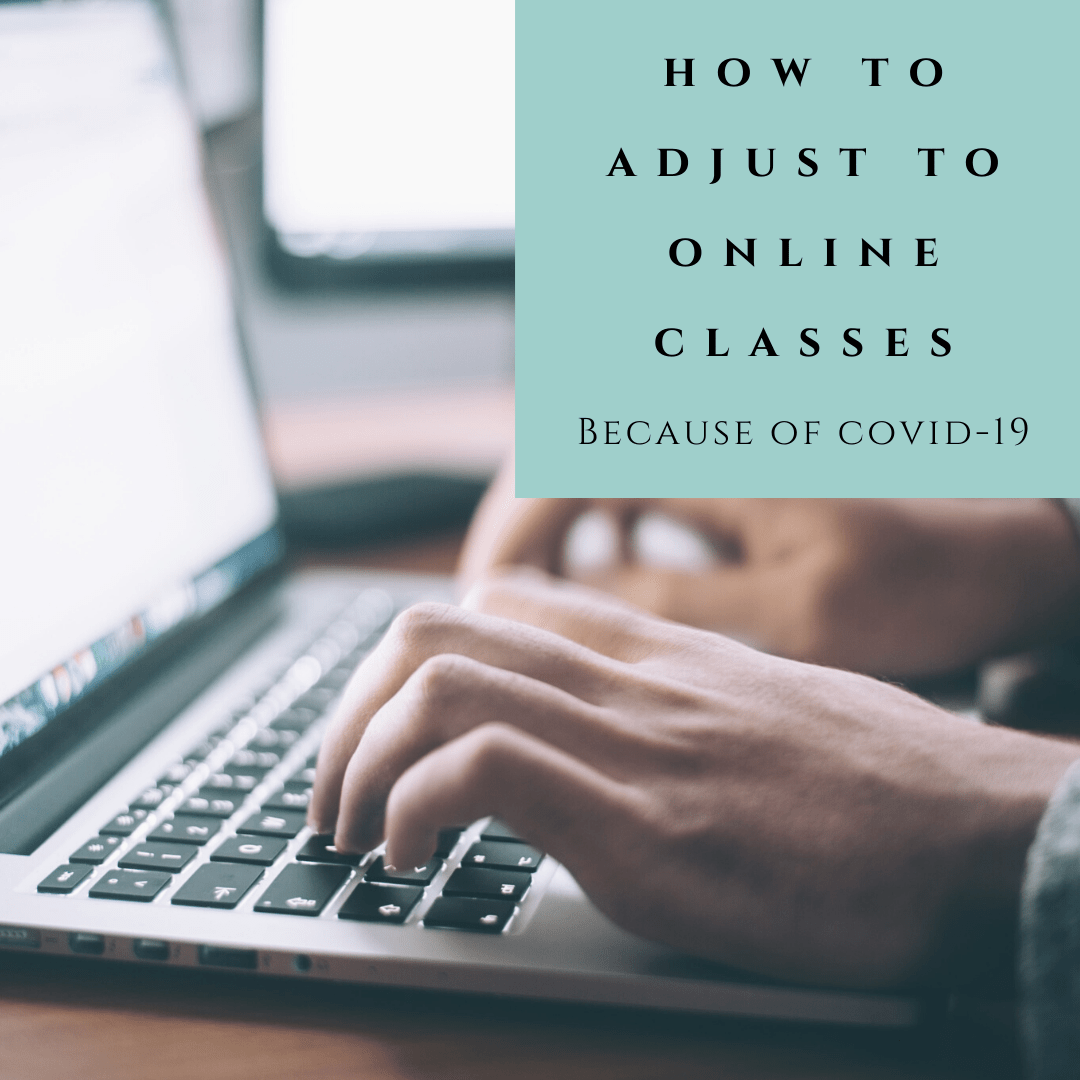
With a global pandemic on the rise, many colleges and universities have chosen to move towards online classes for the 2020-2021 school year. Even afterward, a blended format is preferred as it offers a lot of flexibility in this unstable period.
While a growing number of students have attended at least one online course throughout their college career (according to this news article), handling all your courses online can be tricky at first. However, with a few tips on how to adjust to online classes, you’ll be a pro in no time!
1. Treat the Online Course Similar to How You Would a Seated Course
This includes attending class and showing up on time, completing assignments, studying appropriately, and following instructions on exam requirements. Depending on the course, professor, or that specific exam you may need to prove that before taking the exam you cleared the room of any study materials or unnecessary papers and you might be filmed while taking the exam.
Be sure to take notes and engage with your professor and peers about the material. These practices will help you master the material. If you’re assigned a group project, make sure you’re pulling your weight. If you view the online course similar to a seated course, you’ll naturally set these good habits into practice.
2. Carefully Read Instructions
With this halting change in pace with your academic calendar, your school or individual professors may have already reached out with tips on how to continue to do well on the new online portion of your course. To do your best in this new way of engaging with the course: pay attention to due dates and adjusted details on assignments.
Many of your assignments may have the same due dates as presented at the beginning of the semester (see your syllabus), but some may have changed. Make sure to make those changes in your personal calendar so you don’t fall behind or miss a new detail added by your professor.

3. Get Familiar with Online Tools
Many people are already familiar with online video conferencing platforms like Zoom. Your instructor may provide guidance on how they would like for you to join and how they expect you to participate via the web. Some professors might require you to have your video on (be aware of what you’re doing and wearing.
Make sure it’s all “class” appropriate), mute yourself when you join the call or join in the conversation using the chat or hand raise features. Whatever they require, be mindful of how you present yourself audibly or visually.
4. Minimize Distractions
Since you do not have to physically show up for class, it may be tempting to do other things (i.e. personal tasks or other assignments) during online lectures (live or taped). I highly recommend that you minimize any distractions. During online lectures, be sure to still give your full attention to your professor. This will help you do well in the course and keep your mind clear on those other tasks when it’s the right time to complete those.

5. Maintain (or Create) Habits for Doing Well in School
If you have a dedicated day for studying certain subjects, be sure to continue with your schedule. With everything moved online, your daily rhythm may feel a little out of wack, but you should try to maintain as much normalcy as possible. If you don’t already have a set schedule for when you study for specific courses, now is a great time to do so.
Another great idea is to create a specific study space. This space will help you maintain focus as you work. Adding a bit of structure to what feels like endless days at home can help your mental health and keep you on track with school. This article highlights the importance of creating some structure to your days. This idea leads us to the next point:
6. Continue Overall Healthy Habits
While at home (all day) most days, do what you can to eat well and exercise. Take breaks as you need to. Don’t overextend yourself with work or else you’ll exhaust yourself. Since there isn’t a professor dismissing you out of the classroom at the end of the lecture, it’ll be easy and tempting to remain at your desk to write or read or complete an assignment without a single break.
Continue taking care of yourself. With the increasing spread of the coronavirus in our county, our physical, mental and emotional health are at higher risk. Ensure that you are taking care of your body by staying home and practicing good hygiene as much as possible, and take care of your mental and emotional health by checking in with yourself or others.
If you need to talk with a counselor, many (including those at colleges and universities) are offering video call therapy sessions and some also offer sliding scales for payment since these are trying financial times. Ask your college if they are offering virtual counseling sessions to students at this time. To help you make the most of these virtual sessions, check out this helpful mental health article from Healthline.
Make sure you’re connecting with others, even while social distancing. Be sure to make phone calls, send takes, play video games with your friends, whatever you need to stay connected while also staying safe. If you’re not feeling well and need to take a day off, communicate with your professor.

7. Tap into Your Resources
If you’re struggling with a concept, reach out for help! Some ideas include creating an online study group or connect with a peer individually who you can tell understands the material. If your professor or graduate assistant have virtual office hours, reach out for a session. Your college might also have their academic support center accessible to you for assistance in your classes. Not sure what all resources might be available to you? Check out this article
8. Give Grace
In this unprecedented time in our history, give grace to yourself, especially if a full load of online courses is new to you and extend grace to your professors who also might be new to teaching online. Give yourself and everyone around you time to figure out how to adjust to online classes — don’t strive for perfectionism. Let us all navigate this new way of learning together.
The good news in all of this is most American colleges and universities were already serving their students by offering online classes. The institution may have tools ready to go for you as well as personalized helpful tips for you and your peers on how to transition to online classes well for your specific college.
Now, stay safe and healthy so hopefully, you can be back on campus this fall!
P.S. If you want to make a little extra cash at the end of the semester, be sure to sell your used textbooks using BookScouter.com or the BookScouter App (for iOS and Android) to get the most money back for your books!



